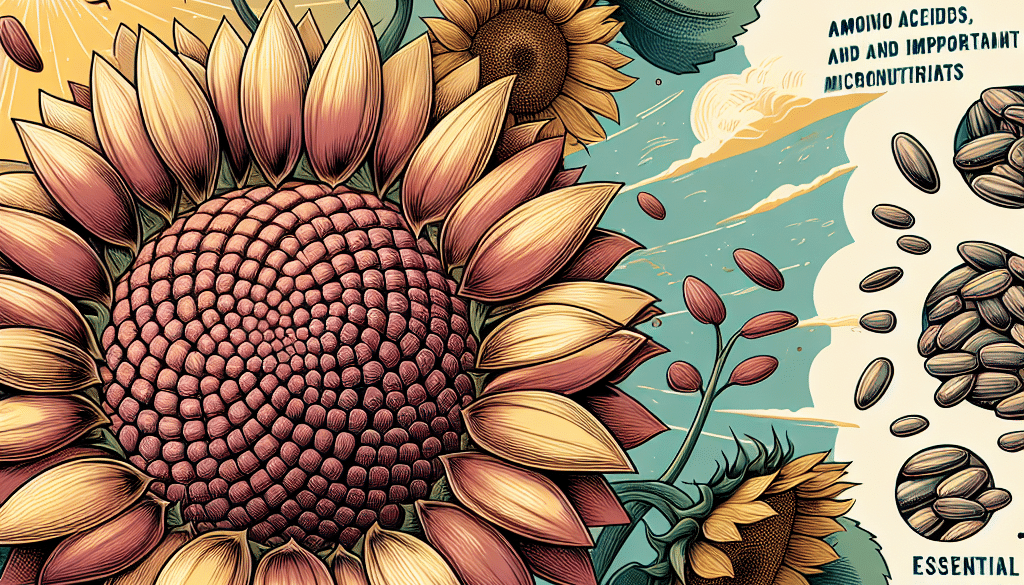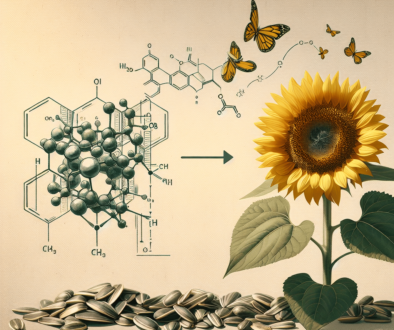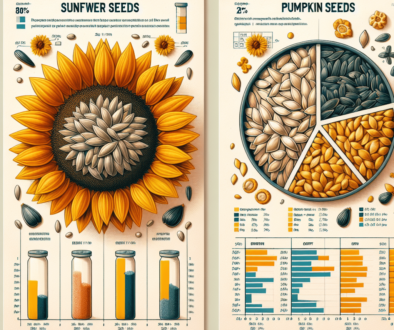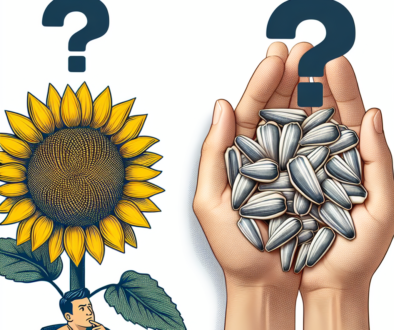Complete Protein: Are Sunflower Seeds the Answer?
-
Table of Contents
- Complete Protein: Exploring Sunflower Seeds as a Nutritional Powerhouse
- Understanding Complete Proteins
- The Nutritional Profile of Sunflower Seeds
- Are Sunflower Seeds a Complete Protein?
- Combining Sunflower Seeds with Other Proteins
- Health Benefits of Sunflower Seeds
- Incorporating Sunflower Seeds into Your Diet
- Case Studies and Research
- Global Trends in Plant-Based Proteins
- Conclusion: Sunflower Seeds as Part of a Balanced Diet
- Discover ETprotein’s High-Quality Protein Products
Complete Protein: Exploring Sunflower Seeds as a Nutritional Powerhouse
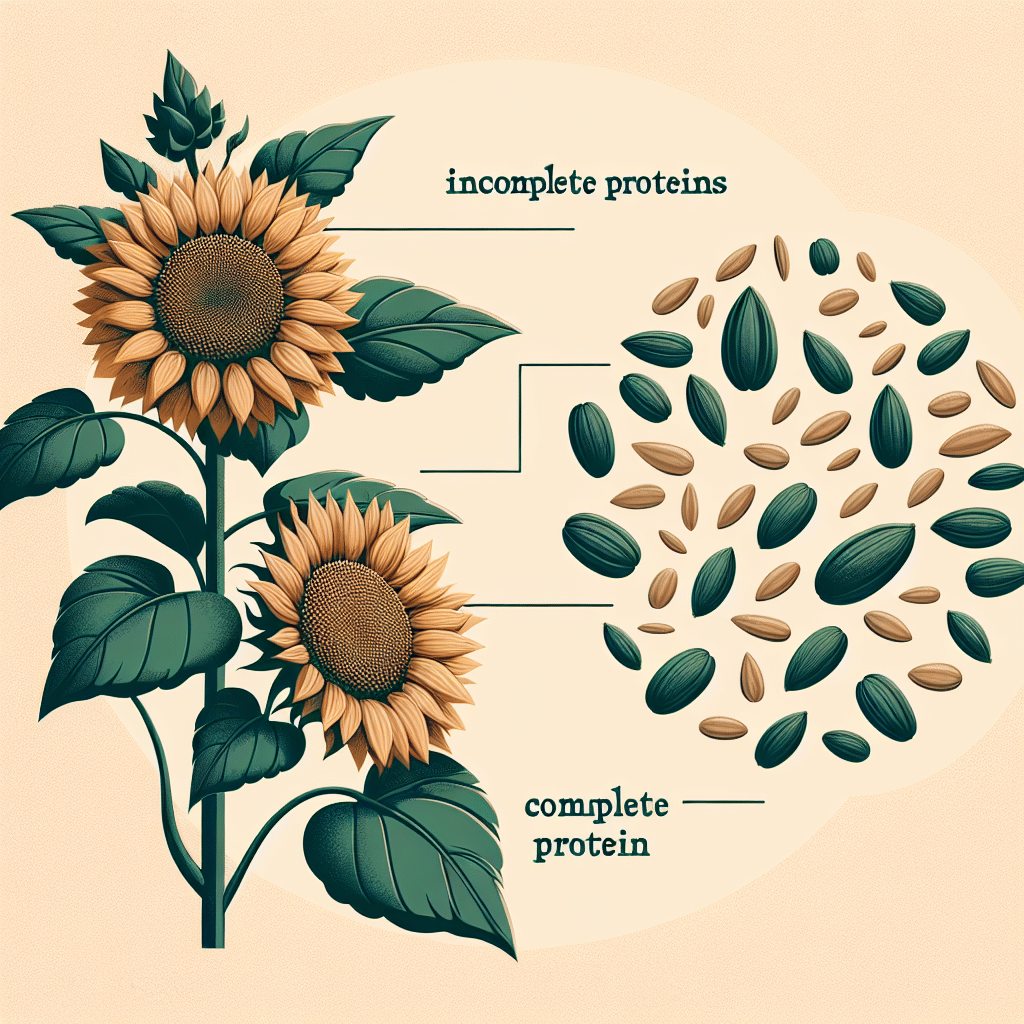
Proteins are the building blocks of life, essential for the growth, repair, and maintenance of our bodies. A complete protein source contains all nine essential amino acids that our bodies cannot produce on their own. While animal products are well-known for being complete protein sources, the quest for plant-based alternatives has led to a surge in interest in seeds, nuts, and legumes. Among these, sunflower seeds have emerged as a potential contender. This article delves into the nutritional profile of sunflower seeds and evaluates their role as a complete protein source.
Understanding Complete Proteins
Before we explore sunflower seeds, it’s important to understand what makes a protein “complete.” Proteins are composed of amino acids, and there are 20 different amino acids that can form a protein. Nine of these are essential amino acids, which means they must be obtained through diet as the body cannot synthesize them. A complete protein source provides all nine essential amino acids in sufficient quantities.
The Nutritional Profile of Sunflower Seeds
Sunflower seeds are the fruits of the sunflower plant, known scientifically as Helianthus annuus. They are a popular snack and a component in various dishes worldwide. But beyond their taste, sunflower seeds are lauded for their impressive nutritional content.
- Rich in healthy fats, primarily polyunsaturated and monounsaturated fats
- Good source of fiber
- Contains vitamins such as Vitamin E, B1, B6, and folate
- Minerals like magnesium, phosphorus, selenium, and copper are abundant
- Contains antioxidants that help combat oxidative stress
Are Sunflower Seeds a Complete Protein?
When it comes to protein content, sunflower seeds offer a significant amount, with approximately 6 grams of protein per ounce. However, the question remains: Are they a complete protein?
While sunflower seeds contain all nine essential amino acids, they are not considered a complete protein because they do not provide these amino acids in the proportions required by the human body. Specifically, sunflower seeds are lower in the essential amino acid lysine. This does not diminish their value as a protein source, but it does mean that they should be paired with other protein sources to ensure a balanced amino acid intake.
Combining Sunflower Seeds with Other Proteins
To make a complete protein meal with sunflower seeds, it’s important to combine them with other foods that are rich in lysine. Some examples include:
- Legumes like lentils, chickpeas, and beans
- Quinoa
- Pistachios
- Pumpkin seeds
By incorporating these foods into your diet alongside sunflower seeds, you can create a well-rounded protein intake.
Health Benefits of Sunflower Seeds
Beyond their protein content, sunflower seeds offer a range of health benefits:
- Heart Health: The unsaturated fats in sunflower seeds can help lower cholesterol levels and reduce the risk of heart disease.
- Anti-inflammatory Properties: Vitamin E and other antioxidants in sunflower seeds can help reduce inflammation in the body.
- Blood Sugar Control: The fiber in sunflower seeds can help regulate blood sugar levels, making them beneficial for individuals with diabetes.
- Bone Health: Magnesium and copper are important for bone structure and strength, and sunflower seeds are a good source of both.
- Immune Support: Selenium and zinc found in sunflower seeds are crucial for a healthy immune system.
Incorporating Sunflower Seeds into Your Diet
There are many ways to include sunflower seeds in your diet:
- As a snack, either raw or roasted
- Sprinkled on salads or yogurt
- Incorporated into baked goods like bread and muffins
- Blended into smoothies or used to make sunflower seed butter
It’s important to note that while sunflower seeds are nutritious, they are also calorie-dense, so moderation is key.
Case Studies and Research
Several studies have highlighted the benefits of sunflower seeds and their components. For instance, research has shown that the phytosterols present in sunflower seeds can contribute to lowering cholesterol levels. Another study indicated that the high fiber content in seeds like sunflower seeds can aid in weight management and digestive health.
However, more research is needed to fully understand the role of sunflower seeds as part of a complete protein diet, especially in comparison to other plant-based proteins.
Global Trends in Plant-Based Proteins
The demand for plant-based proteins is on the rise, driven by health concerns, environmental factors, and ethical considerations. Sunflower seeds are part of this trend, as consumers look for sustainable and healthy alternatives to animal proteins. The global market for plant-based proteins is expected to continue growing, with sunflower seeds playing a role in this expansion.
Conclusion: Sunflower Seeds as Part of a Balanced Diet
While sunflower seeds alone do not constitute a complete protein, they are a valuable addition to a balanced diet. Their rich nutritional profile and health benefits make them an excellent food choice for those looking to enhance their protein intake with plant-based options. By combining sunflower seeds with other protein sources, you can ensure a well-rounded diet that supports overall health and well-being.
Discover ETprotein’s High-Quality Protein Products
If you’re looking to incorporate more plant-based proteins into your diet, ETprotein offers a range of high-quality protein products that can meet your needs. Their sunflower seed protein is just one of the many options available, providing a neutral taste and non-GMO, allergen-free attributes. Whether you’re involved in the food and beverage industry or seeking personal health supplements, ETprotein has the solutions to support your protein requirements.
About ETprotein:
ETprotein, a reputable protein Chinese factory manufacturer and supplier, is renowned for producing, stocking, exporting, and delivering the highest quality organic bulk vegan protein and plant proteins. They include Organic rice protein, clear rice protein, pea protein, clear pea protein, pumpkin seed protein, sunflower seed protein, mung bean protein, etc. Their offerings, characterized by a neutral taste, non-GMO, allergen-free attributes, cater to a diverse range of industries. They serve nutraceutical, pharmaceutical, cosmeceutical, veterinary, as well as food and beverage finished product distributors, traders, and manufacturers across Europe, USA, Canada, Australia, Thailand, Japan, Korea, Brazil, and Chile, among others.
ETprotein specialization includes exporting and delivering tailor-made protein powder and finished nutritional supplements. Their extensive product range covers sectors like Food and Beverage, Sports Nutrition, Weight Management, Dietary Supplements, Health and Wellness Products, and Infant Formula, ensuring comprehensive solutions to meet all your protein needs.
As a trusted company by leading global food and beverage brands and Fortune 500 companies, ETprotein reinforces China’s reputation in the global arena. For more information or to sample their products, please contact them and email sales(at)ETprotein.com today.

